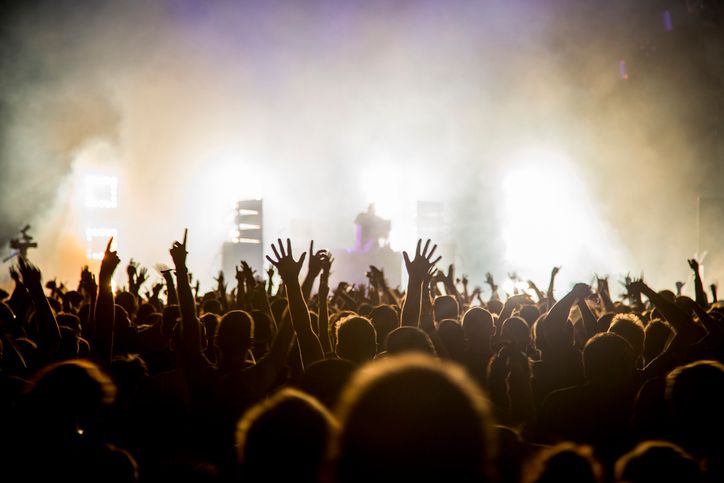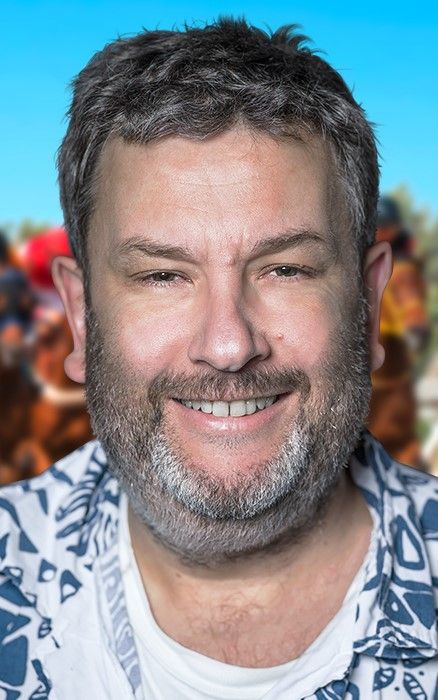The essay below, from Foo Fighters frontman Dave Grohl, is part of The Atlantic magazine’s series imagining what the post-coronavirus world will be like. It’s a brilliant investigation into a wide range of topics from ‘foodie culture’, to the handshake, air travel and working from home. To read the whole essay please click here.
… Unfortunately, the coronavirus pandemic has reduced today’s live music to unflattering little windows that look like doorbell security footage and sound like Neil Armstrong’s distorted transmissions from the moon, so stuttered and compressed. It’s enough to make Max Headroom seem lifelike. Don’t get me wrong, I can deal with the monotony and limited cuisine of quarantine (my lasagna game is on point!), and I know that those of us who don’t have to work in hospitals or deliver packages are the lucky ones, but still, I’m hungry for a big old plate of sweaty, ear-shredding, live rock and roll, ASAP. The kind that makes your heart race, your body move, and your soul stir with passion.
There is nothing like the energy and atmosphere of live music. It is the most life-affirming experience, to see your favourite performer onstage, in the flesh, rather than as a one-dimensional image glowing in your lap as you spiral down a midnight YouTube wormhole. Even our most beloved superheroes become human in person. Imagine being at Wembley Stadium in 1985 as Freddie Mercury walked onstage for the Live Aid benefit concert. Forever regarded as one of the most triumphant live performances of all time (clocking in at a mere 22 minutes) Freddie and Queen somehow managed to remind us that behind every rock god is someone who puts on their studded arm bracelet, absurdly tight white tank, and stonewashed jeans one pant leg at a time just like the rest of us. But, it wasn’t necessarily Queen’s musical magic that made history that day. It was Freddie's connection with the audience that transformed that dilapidated soccer stadium into a sonic cathedral. In broad daylight, he majestically made 72,000 people his instrument, joining them in harmonious unison.
As a lifelong concertgoer, I know this feeling well. I myself have been pressed against the cold front rail of an arena rock show. I have air-drummed along to my favourite songs in the rafters, and been crushed in the crowd, dancing to dangerous decibel levels while lost in the rhythm. I’ve been lifted and carried to the stage by total strangers for a glorious swan dive back into their sweaty embrace. Arm in arm, I have sung at the top of my lungs with people I may never see again. All to celebrate and share the tangible, communal power of music.
When you take away the pyrotechnics and confetti of an arena rock concert, what are you left with? Just … people? I will never forget the night I witnessed U2 perform at what used to be called the MCI Center in D.C. This was their 2001 Elevation Tour, a massive production. I waited for the lights to go out so that I could lose myself in a magnificent, state-of-the-art rock show. To my surprise, the band walked onstage without any introduction, house lights fully illuminated, and kicked into the first song beneath their harsh, fluorescent glow, without the usual barrage of lasers and LED screens we’ve all become accustomed to. The brilliant move stunned the audience and began an unforgettable concert on a very raw, personal note. This was no accident, mind you. It was a lesson in intimacy. Without all the strobes and lasers, the room shrank to the size of a dirty nightclub at last call, every blemish in plain view. And with that simple gesture, we were reminded that we are all indeed just people. People that need to connect with one another.
One night, before a Foo Fighters show in Vancouver, my tour manager alerted me that the “Boss” himself, Bruce Springsteen, was in attendance (cue paralyzing nerves). Frozen with fear, I wondered how I could possibly perform in front of this legendary showman, famous for his epic concerts that span four hours. I surely could never live up to his lofty expectations! It turns out he was there to see the opening band (cue devastating humiliation), so I was off the hook. But we chatted briefly before the gig, and I was again reminded of not only the human being behind every superhero, but also the reason millions of people identify with him: He is real. Three hours later, as I sat on a locker-room bench recovering from the show, drenched in my own sweat, there was a knock at the door. Bruce wanted to say hello. Having actually stayed for our set (cue jaw crashing to the floor), he very generously thanked us and commented on our performance, specifically the rapport we seem to have with our audience. Something he obviously understood very well. When asked where he watched the show from, he said that he’d stood in the crowd, just like everyone else. Of course he did. He was searching for that connection too.
A few days later, I received a letter from Bruce, handwritten on hotel stationery, that explained this very clearly. ‘When you look out at the audience,’ he wrote, ‘you should see yourself in them, just as they should see themselves in you.’
Not to brag, but I think I’ve had the best seat in the house for 25 years. Because I do see you. I see you pressed against the cold front rails. I see you air-drumming along to your favourite songs in the distant rafters. I see you lifted above the crowd and carried to the stage for a glorious swan dive back into its sweaty embrace. I see your homemade signs and your vintage T-shirts. I hear your laughter and your screams and I see your tears. I have seen you yawn (yeah, you), and I’ve watched you pass out drunk in your seat. I've seen you in hurricane-force winds, in 100-degree heat, in sub-zero temperatures. I have even seen some of you grow older and become parents, now with your children's Day-Glo protective headphones bouncing on your shoulders. And each night when I tell our lighting engineer to “Light ’em up!,” I do so because I need that room to shrink, and to join with you as one under the harsh, fluorescent glow.
In today’s world of fear and unease and social distancing, it's hard to imagine sharing experiences like these ever again. I don’t know when it will be safe to return to singing arm in arm at the top of our lungs, hearts racing, bodies moving, souls bursting with life. But I do know that we will do it again, because we have to. It’s not a choice. We’re human. We need moments that reassure us that we are not alone. That we are understood. That we are imperfect. And, most important, that we need each other. I have shared my music, my words, my life with the people who come to our shows. And they have shared their voices with me. Without that audience—that screaming, sweating audience—my songs would only be sound. But together, we are instruments in a sonic cathedral, one that we build together night after night. And one that we will surely build again.
Meantime in New Zealand the main pay-TV platform Sky Sports has begun to tease audiences with the prospect of a return to live sporting action. The five New Zealand Super Rugby franchises will play a domestic-only version of the competition which will start on June 13, as the Government moves the country out of the two most severe stages of the coronavirus lockdown. The teams will play each other home and away over 10 weeks.
New Zealand is believed to be the first major rugby nation to resume elite-level competition but no decision has been made yet over the All Blacks’ scheduled home Tests in July against Wales and Scotland. New Zealand Rugby is yet to announce arrangements for the resumption of women’s rugby.
That cranking up of the rugby machine prompted the creative minds at Sky Sports and DDB New Zealand to pull together the Sport Gets Back Up promotional theme which is, frankly, exceptional.


